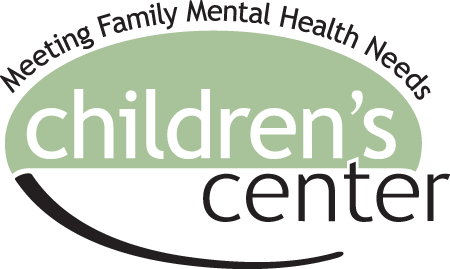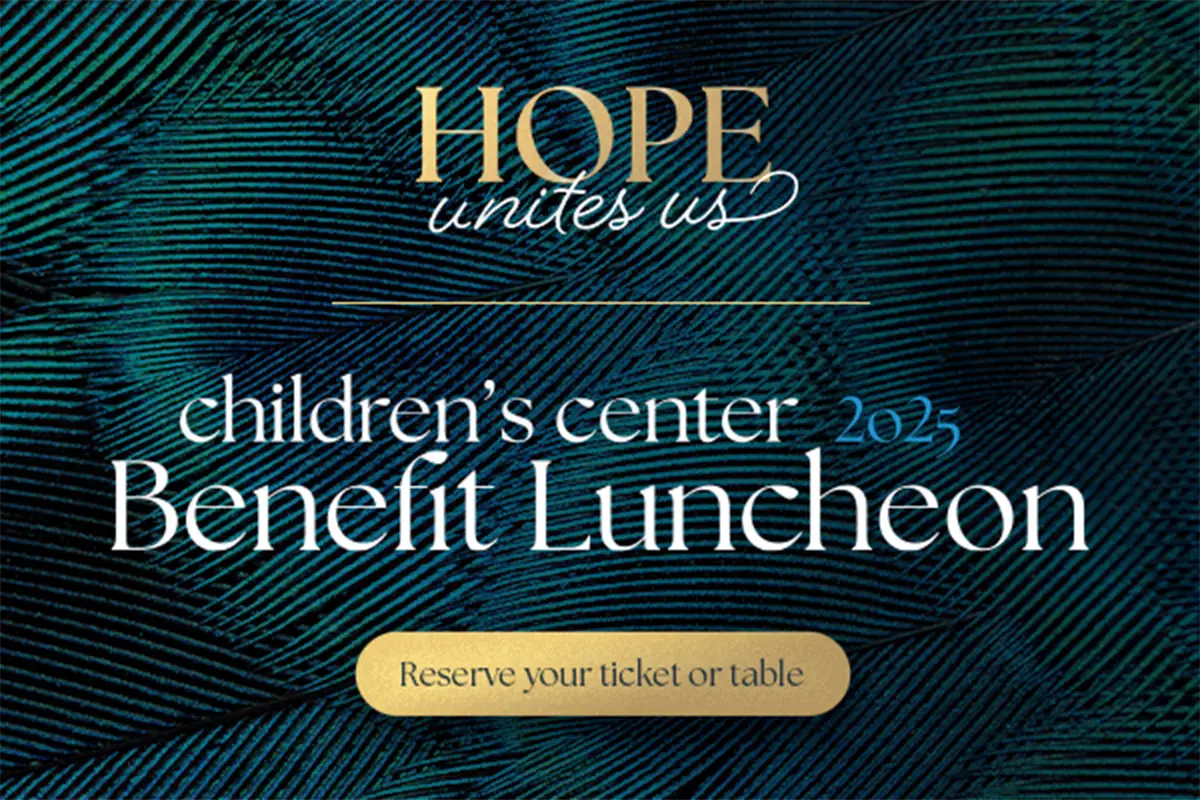Legacy Giving
You can help Children’s Center continue its work for many years to come by writing Children’s Center into your estate plan. You’ll change and save lives — while creating a legacy for generations to come. Your tax-deductible gift will make a real difference. Contact us today if you are interested in planned giving and legacy gifts.
Call
(360) 699-2244
What is Planned Giving?
Planned giving refers to several specific gift types that can be funded with cash, equity, or property. Planned gifts are referred to as such because they require more planning, negotiation and counsel than an outright gift. These gifts involve an arrangement between a donor and a non-profit organization, whereby the donor takes a partial tax deduction for the gift and then receives an income stream from the non-profit.
Benefits of Planned Giving
- Increase current income for the donor or others
- Reduce the donor’s income tax
- Avoid capital gains tax
- Pass assets to family at a reduced tax cost
- Make significant donations to Children’s Center
Ways to Give
If you are considering naming Children’s Center in your estate, Thank You! Make that first step by printing and then filling out the Intent to Give form.
Next, hire a trusted legal or financial advisor who can help you develop a plan for making charitable gifts that complement your current investment and estate plans. He or she can help you determine the best type and structure of gift based on your goals, circumstances, and tax implications.
Bequest
When you decide to leave assets to charity in a will, you are making a bequest. Your estate will receive a charitable estate tax deduction at your death when the gift is made to charity.
There are two kinds of gifts that can be named in a will. A restricted gift is one in which a specific program is named. For example: if the PARC program is named, all assets will be allocated to that program, only. An unrestricted gift allows Children’s Center to allocate assets to the program with the greatest need. The following types of assets are typically given:
• Life insurance proceeds: This is one of the most effective ways to maximize giving. If you have a policy that is 1) no longer needed to provide for the survivors of the one insured, 2) will add to the size to a taxable estate without benefit to the survivors, 3) an old policy that does not provide good economic return then consider passing this on to Children’s Center. Our organization would receive the large gift at the death of the insured and the potential of using the cash value of the policy for current needs, if this cash value exists. In return, you would gain a tax deduction for the amount of that cash value and a reduction in taxable estate, if applicable.
• Stock: If you donate stocks to a charity, you can take a tax deduction. The amount of the deduction depends on how long you have held the stock, and how much it has grown or declined in value, over that period. According to Kiplinger.com, if the stock has increased in value since you bought it, then you’ll be better off donating it to charity instead of selling it. If the stock has decreased in value, though, it’s better to cash it in first so you can deduct the loss.
• Cash
• Personal property: The federal government encourages donations of property to public, non-profit charities. The same tax deductions are permitted for donations of property as for cash donations.
• Real estate: A gift of real estate can be a very efficient way for you to give. When appreciated real estate that has been owned for a number of years is sold, it is probable that you will be faced with a substantial capital gains tax burden.
By gifting real property that has been held at least a year and a day, you are entitled to a charitable tax deduction for the fair market value on the date of the gift and will bypass the capital gains tax due on the appreciation. However, when the property has declined in value it is better to sell the property outright and gift the proceeds from the sale. In this way, a capital loss can be established and will offer a tax deduction in addition to the charitable tax deduction for the amount of the cash gift.
Retirement Plan
The disposition of assets held in IRAs and retirement plan accounts, such as 401(k), 401(a), 403(b) or 457 plan accounts, is governed by beneficiary designations for the accounts. You can give the assets or a portion of the assets in these accounts to Children’s Center by naming us as a beneficiary on the appropriate form provided by your plan administrator. Using retirement assets to make charitable gifts at death avoids the expense of revising a will or revocable trust agreement. Also, it has the advantage that long-deferred, usually significant income tax on highly-appreciated retirement assets will not be incurred either by you or your family.
Gift Annuity
A gift annuity involves a contract between a donor and a charity, whereby the donor transfers cash or property to the charity in exchange for a partial tax deduction and a lifetime stream of annual income from the charity. When the donor dies, the charity keeps the gift. The amount of the income stream is determined by many factors including the donor’s age and the policy of the charity.
Pooled Income Fund
The name describes this planned gift well—Children’s Center accepts gifts from many donors into a fund and distributes the income of the fund to each donor or recipient of the donor’s choosing. Each recipient receives income in proportion to his or her share of the fund. When making a gift to a pooled fund, a donor receives a charitable income tax deduction and will not have to pay capital gains tax if the gift is of appreciated property. When an income beneficiary dies, Children’s Center receives the donor’s portion of the fund.
Charitable Remainder Trust
This is a Planned Giving vehicle that entails a donor placing a major gift of cash or property into a trust. The trust then pays a fixed amount of income each year to the donor or the donor’s specified beneficiary. When the donor dies, the remainder of the trust is transferred to the charity.
Charitable Lead Trust
Charitable lead trusts are often viewed as the opposite of a charitable remainder trust. A donor transfers property to the lead trust, which pays a percentage of the value of the trust assets, usually for a term of years, to Children’s Center. At the end of the trust term, the remaining assets in the trust and any growth it has realized are passed to your heirs. Although there is no income tax deduction when you create a charitable lead trust, your gift or estate tax is greatly discounted and any growth is passed to your heirs, gift and estate tax free. It is one of the only transfer devices currently used that can discount the value of the original assets and result in little or no taxes. At the same time, you fulfill your charitable desires.
Retained Life Estate
A donor may make a gift of his personal residence or farm to Children’s Center and retain the right to live there for the remainder of his or her life. The donor receives an immediate income tax deduction for the gift. At the donor’s death, Children’s Center can use or sell the property.
Impact Your Community
Children’s Center is right here in your community! Your investment serves kids in our community so they can get the help that they need and deserve.
Help Keep Us Strong
Because of the generosity of donors like you we are able to maintain financial stability. Established in 1989 we continue to help kids weather the difficulties in life. Any donation, no matter how big or small, goes directly to help support our programs and give the children and families we serve a brighter future.
Invest in Fiscal Responsibility
Children’s Center has a responsibility to invest in the most critical needs for the children and families we serve in your community. Like every agency we have overhead and administrative expenses. However, we try to keep them as low as possible. You can rest assured that your dollars help create and maintain innovative, effective programs that serve our kids in your community.
Support Clinical Excellence
Staying true to our values means serving children and families within the highest standards of care:
- Offering client-directed, outcome informed treatment approaches
- Providing family intervention as early as possible
- Working in partnership with other community providers and groups to empower families
Be a Champion for Every Vulnerable Child
We invite you to champion the cause of Children’s Center. Get on board and be a voice of hope for vulnerable children and youth.
A Word
From A Legacy Society Champion
“As a pediatrician in the community for 42 years I was well aware of the dedication and quality of care that was offered at Children’s Center. We are fortunate in the community to have these dedicated doctors and therapists to meet our patients’ needs. Over the years my family and I have tried to give back to the community and to pay forward what we have received from this community.”
– Dr. Gerald Bader, MD
Get News & Updates
Use the form below to subscribe to our mailed newsletter. Provide your email address to be added to our email newsletter when we move to that format.
Contact Us Today
Location: 13500 SE 7th Street
Vancouver, WA 98683 | Map
Telephone: (360) 699-2244
Fax: (360) 699-1900
Hours: M-Th: 8am - 7pm & Fri: 8am-1pm
Non-Discrimination Policy
It is the policy of Children's Center that no person shall be subjected to discrimination in this agency. All aspects of program activities and services are administrated without regard to race, color, national origin, creed, religion, sex, sexual orientation, gender expression, age, marital status, physical disabilities, veteran status, or the presence of any physical, mental or sensory disability, which includes persons known to be HIV positive or have AIDS. Children's Center is an Equal Opportunity Employer.

